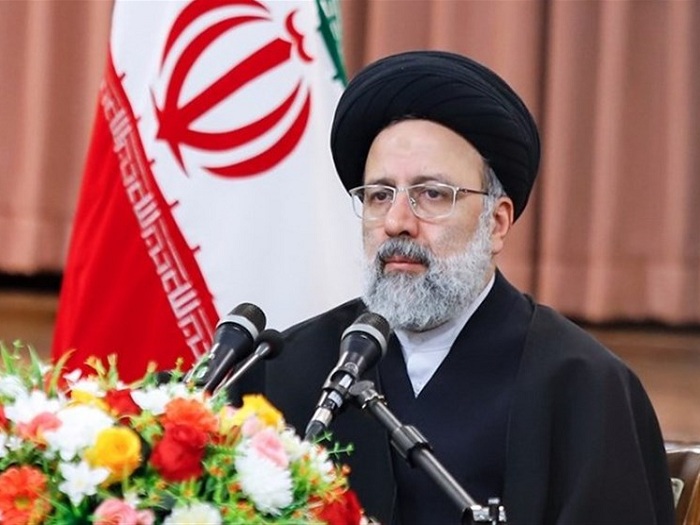Provide three special offers to save Hepco

The head of the judiciary agreed with the proposal to quickly transfer government shares in Hepco to Imidro to solve the problems of this large industrial complex and ordered that the proposal be reflected in the government's implementation and, if necessary, in the Supreme Economic Coordination Council of the three powers.
According to the International Exhibition of Iranian Stone, a special meeting to address the problems of Hepco was held on Thursday afternoon at the same time as Labor Day in the office of the head of the judiciary.
Ayatollah Seyyed Ibrahim Ra'isi, in a meeting with a group of production members and labor activists on Tuesday, May 29, promised to immediately follow up on the problems of Hepco in a special meeting.
Accordingly, less than forty-eight hours after this promise, the head of the judiciary met on Thursday evening, May 4, in the presence of the head of the judiciary, the central governor and the prosecutor, the deputy minister of industry and the head of Imidro, the CEO and A number of HEPCO workers were held to discuss ways to solve the company's problems.
In this meeting, after presenting a report on the process of addressing the problems of Hepco, after last year's visit of the head of the judiciary to Arak and the presentation of various views and suggestions, a proposed package was presented with the aim of solving Hepco's problems in a specific process.
The uncertainty over Hepco's ownership status, lack of liquidity and raw materials needed for production, debt accumulation and financial corruption were among the most important problems for Hepco.
Implementing government decrees on Hepco, banning the import of second-hand machinery, overseeing the transfer of the company and auditing, and handling HEPCO's financial affairs were also among the demands of the workers' representatives from the head of the judiciary.
Workers' representatives also called for the appointment of a special envoy of the head of the judiciary to maintain regular contact with them in pursuit of the case, with Raisi noting that the responsibility was delegated to the National Inspection Agency at a meeting with labor activists on Tuesday.
At the meeting, three proposals were made to solve the problems of Hepco, including the rapid determination of the company's ownership due to the termination of the privatization organization's contract with the previous owner by the government, the sale of 3% of the company's shares on the stock exchange to inject liquidity into Hepco and transfer the company to The consortium of large mining companies.
At the meeting, it was suggested that the process of expropriating the ownership of Hepco from the Privatization Organization be carried out quickly and that the ownership of the company be handed over to a consortium consisting of the country's three largest mining companies at Imidro's suggestion.
It was also suggested that by offering 3% of the company's shares on the stock exchange and paying the proceeds to the company, the liquidity required by Hepco to jump in production and return to the former activity circuit would be provided.
Since the proceeds from the sale of the company's shares will be credited to the treasury account, it was suggested that the amount be transferred to Hepco in the form of a five-year loan with the consent of the chiefs of staff, and that a group monitor the process.
At the end of the meeting, the head of the judiciary stressed that the decisions of the meeting were reflected in a package of proposals to the first vice president and the head of the headquarters of the Resistance Economy Command, so that the necessary steps could be taken.
It was also decided that the prosecutor of Markazi province, in cooperation with the governor, would follow up on the matter until the result was achieved and monitor the implementation of these decisions.
The head of the judiciary called the source of Hepco's problems and injuries the wrong way to privatize and cited the cancellation of the transfer as a big and important step towards solving the company's problems.
Emphasizing the need to address the root causes of Hepco's problems, Raisi expressed hope that the transfer of the company to Imidro would be a new step towards reviving and rebuilding its production line and injecting liquidity into workers' efforts in the field of production leaps.
The head of the judiciary described the workers as believers in the revolution and the system and the leadership's enthusiasm, and called for their demands to be addressed in order to address their job and livelihood concerns.
At the same time, Ra'isi reminded that the word of truth and the pursuit of trade union rights must be presented in the right and legal ways so that it is not abused by the ill-wishers of the system and the country, and the production cycle does not stop for a moment.
According to the report, on Thursday, at the same time as Labor Day, the head of the judiciary met separately with the CEOs of some production and industrial units who asked producers to provide a specific time and follow up on the problems of their units. Investigate the problems of these production and industrial units.
* Tasnim










